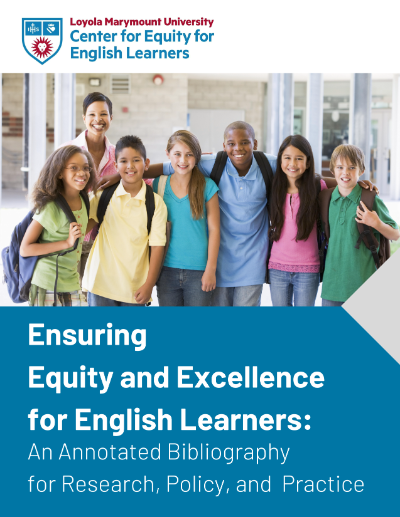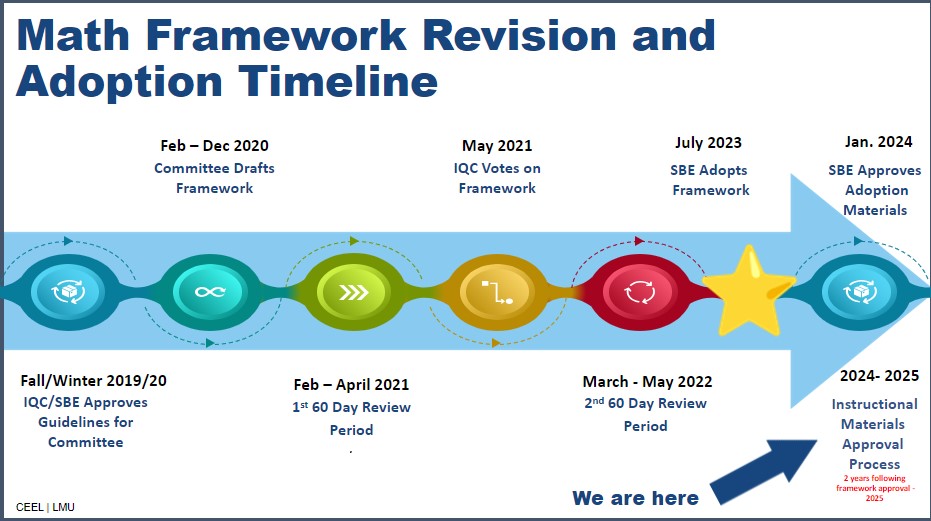
For the past five years CEEL, together with other educational, advocacy and community organizations, has advocated for equity to be a driving force in the Mathematics Framework content development, revision, and implementation processes. CEEL continues to advocate for the 2023 CA Mathematics Framework to be the guidepost for the adoption of high quality instructional materials in order to provide access to Multilingual/English Learners to rigorous culturally and linguistically sustaining mathematics instruction.
Curriculum frameworks provide guidance to educators, parents, and publishers, to support implementing California content standards adopted by the State Board of Education (SBE). Frameworks are developed by the Instructional Quality Commission, formerly known as the Curriculum Development and Supplemental Materials Commission, which also reviews and recommends textbooks and other instructional materials to be adopted by the SBE. Schools in California, other states and abroad may review and use the California State Board of Education-adopted Content Standards and Curriculum Frameworks in developing their own curricula. (CDE)
During the iterative review cycles of the Mathematics Framework revision process, CEEL, alongside a coalition of equity-oriented advocates and organizations focused on ELs, provided written and oral comments that signaled the need to include specific practices and content to ensure that mathematics instruction is accessible to all students.
Additionally, the Center for Equity for English Learners, together with Californians Together, The Education Trust-West and other education organizations, have signed on to several of the coalition letters to the Instructional Quality Commission and Mathematics CFCC Meetings and the State Board of Education. This group of organizations have formed the High-Quality Instructional Materials Learning Partners Coalition (HQIM LPC).
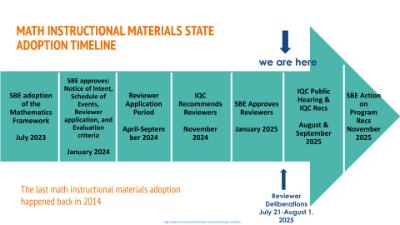
The HQIM LPC’s primary focus is transforming math education in California. This coalition is formed by a collective of educators, advocates, and practitioners representing organizations united by a shared commitment to advancing high-quality instructional materials (HQIM) and raising the bar for math education in California. The Coalition’s mission is built on strategic initiatives encompassing advocacy, professional development, and collaboration with educational leaders. We firmly believe every student deserves access to excellent math education, and our goal is to make this a reality.
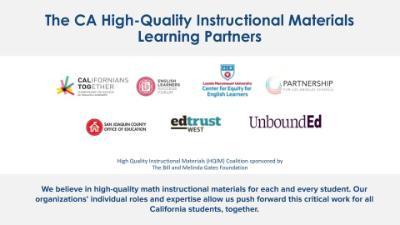
There is a pivotal need to ensure that a robust equity lens, culturally and linguistically sustaining practices, and asset-based approaches continue to be the guidepost for mathematics instruction and the adoption of high-quality instructional materials. Building teacher capacity, specifically in these areas, through specialized professional learning is crucial in ensuring equitable access for English Learners to the mathematical content and practices.
California continues to have wide and persistent achievement gaps on the math CAASPP for students of color, students from low-income households, English learners, and students with disabilities. Targeted practices such as differentiation, universal design for learning, and scaffolding require specific implementation guidance for various student groups.
ELs need specific and strategic language support to use the language of mathematics to demonstrate their thinking as they construct viable arguments and critique the reasoning of others. High-quality instructional materials ensure teachers are given the tools and resources they need to effectively support their multilingual students. They also help mitigate low expectations, bias, and subjective mindsets (English Learners Success Forum). As the introduction to chapter 4 of the CA Mathematics framework states, “California schools must prepare students to be powerful users of mathematics to understand and affect their worlds, in whatever life path they embark upon.”
Connect with us to access the resources provided by our Coalition, and sign-up for updates to stay up-to date on this process.
-400x225.png)
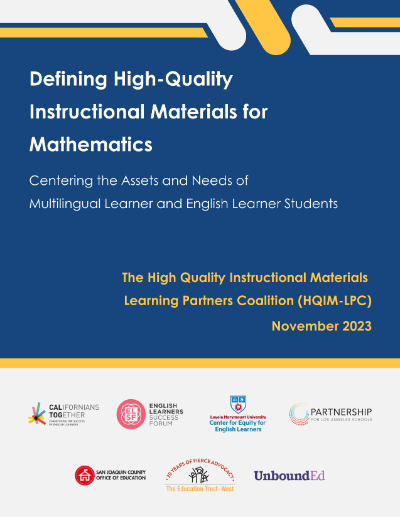
HQIM Definition
CEEL leads advocacy efforts as part of The High-Quality Instructional Materials Learning Partners Coalition (HQIM-LPC).
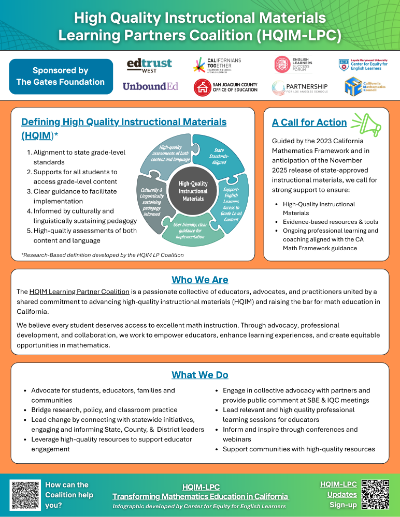
HQIM-LPC At-a-Glance
An infographic overview of our coalition’s vision and guiding principles, with links to resources and guidance your team can use to advance math materials adoption and move your work forward.
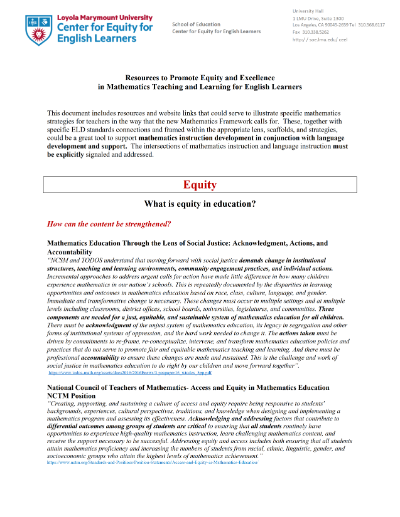
Equity Resources
Resources and Links to support the implementation of specific Math strategies as highlighted in the New Framework.
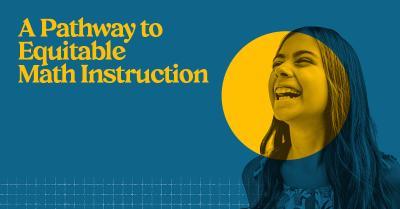
Math Equity Toolkit
Resources and guidance to support the development of Black, LatinX, and Multilingual students in grades 6-8.
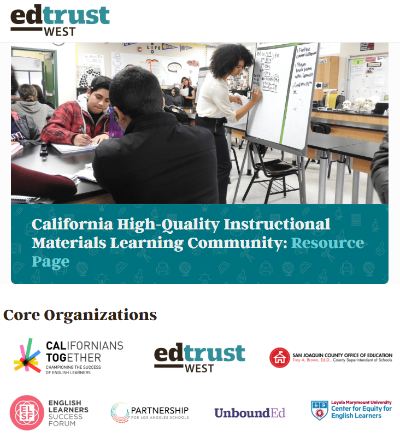
CA HQIM Coalition: Resource Page
Delve into resources carefully curated by the HQIM learning community partners to empower educators and enhance student learning.
-400x309.png)
CEEL's HQIM Selection Criteria for ML/ELs
Criteria for Selecting High Quality Instructional Materials with Considerations for Multilingual/English Learners.
_Page_1-400x517.png)
